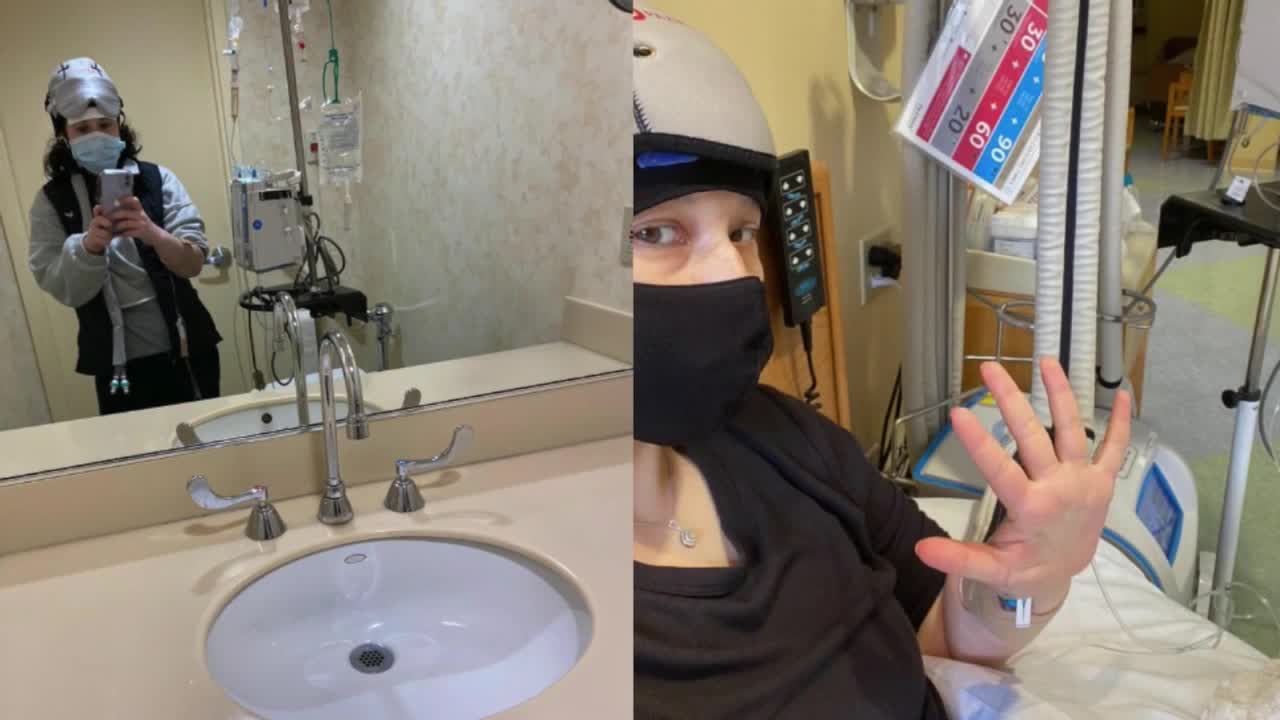DENVER — For Emma Schlamm, it started with a quick twinge of pain on her left side during the pandemic.
“I went to an urgent care, and I said, ‘Can you just check this out?’” she said.
An ultrasound revealed a mass on one of her ovaries — at that point, Emma said she was told it was most likely a benign cyst.
After months of advocating for herself and pushing for tests, she underwent surgery.
“They went in and they removed my entire ovary, then waiting 10 excruciating days for the pathology to come back. They said it was a very rare kind of cancer, and that I would need to remove my other ovary too, and undergo chemotherapy,” she said.

Now, researchers say a simple blood test that can detect early-stage ovarian cancer is on the horizon.
Denver biotech lab AOA Dx has been developing the test for several years.
The test uses cutting-edge AI technology to analyze lipids and proteins in blood samples.
“It is one of the fastest growing cancers, and it actually goes from stage one to stage four in under a year,” said AOA Dx co-founder Anna Jeter, “the latest research that's been published says you only have about four months to diagnose the cancer before it fully metastasizes throughout your body.”
Emma is not alone in her diagnosis journey – getting diagnosed with ovarian cancer takes on average around nine months, according to researchers.
Symptoms of ovarian cancer include abdominal bloating, feeling full quickly when eating, pain in the stomach or pelvic area, or a frequent or urgent need to urinate – all symptoms that resemble other benign conditions.
“Because so many people experience these symptoms, they're oftentimes dismissed, and not until the patient comes to the doctor, usually around their third appointment, and complain that doctors start to take this seriously,” said Jeter. “By the time they get to ovarian cancers, differential diagnosis on average, seven to eight months or more have passed, and the disease has spread from early stage to late stage.”

Today's standard CA125 blood test misses more than half of early diagnoses — only around 20 percent of diagnoses for ovarian cancer happen in the early stages.
Scientists at AOA Dx worked with University of Colorado researchers to run the test on a thousand patients over a period of three years.
That trial had an over 90-percent success rate in detecting cancer early.
A second sample set in conjunction with University of Manchester researchers showed similar success rates.
“If 75% of ovarian cancer is diagnosed in early stage, it will eliminate more than half the deaths of ovarian cancer. So it's very important for us to diagnose this disease as early as possible in order to have an intervention,” continued Jeter.
According to CU Anschutz, it’s estimated that 290 women will be diagnosed with ovarian cancer this year – and an estimated 200 women will die from it.
AOA Dx is now working with the FDA to get regulatory approval, with the hope of getting it into the hands of healthcare providers within the next couple of years.
"We're going out and already working with a lot of clinicians and key opinion leaders and understanding where are the pain points in the patient journey for you as a provider, for you to go to this test, for you to introduce this test into your practice [at an early stage in the patient journey]," said Jeter.

The risk of re-occurrence in ovarian cancer patients can be high.
Emma says she’s been in remission for almost five years.
She hopes this breakthrough will continue to give her peace of mind in the future.
“If there was this kind of blood test that could really kind of quickly give me a sense of I'm good, and then I can figure out why I'm having this pain, it'd be huge, absolutely huge.”






